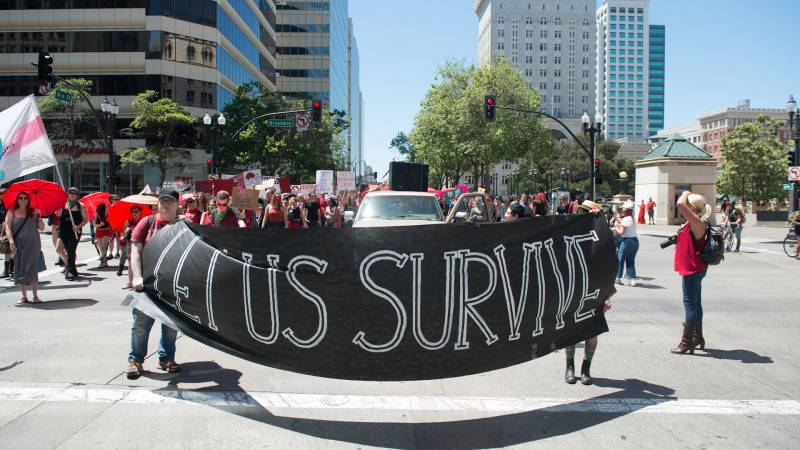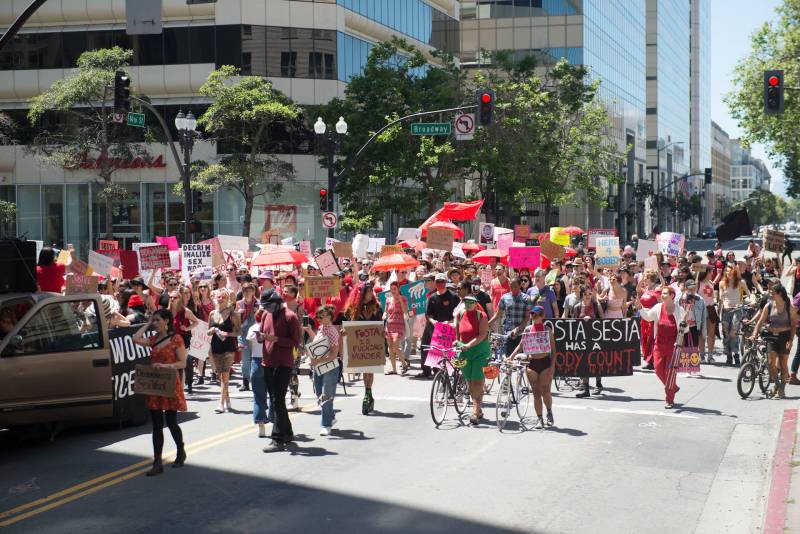Retail, restaurant, hospitality and arts workers—and all kinds of professionals whose livelihoods are tied to in-person meetings—are currently suffering from coronavirus-related job cuts. The U.S. Private Sector Job Quality Index estimates that 37 million jobs are vulnerable to layoffs due to social distancing measures to slow the spread of the pandemic.
While many white collar workers continue to labor from home, one group facing particularly acute challenges are sex workers, whose work is often illegal, in legal gray areas or not covered by unemployment laws.
There are sex workers of all income levels and identities, but many come from marginalized communities and have trouble accessing other forms of employment, says Maxine Holloway, co-founder of the advocacy organization Bay Area Workers Support (BAWS). “There’s a large amount of our community that are people of color, that are trans women, that are disabled folks—folks that are not always able to access employment often turn to sex work to be able to survive and make ends meet,” Holloway explains.
A collective of sex workers, BAWS lobbies for the decriminalization of sex work and shares peer-to-peer resources. In light of the coronavirus pandemic, they re-launched a microgrant program that gives out payments of $50–$200 to sex workers in need. They also issued a guide for those coping with a loss of income during the COVID-19 outbreak, complete with health tips and strategies for remote work during social distancing.
Similar efforts are taking place across the country: the Sex Worker Outreach Project, a national advocacy group, is organizing mutual aid fundraisers for sex workers in places like Los Angeles, Austin and New York, and sex workers in Las Vegas have been fundraising via crowdfunding platforms such as GoFundMe.




